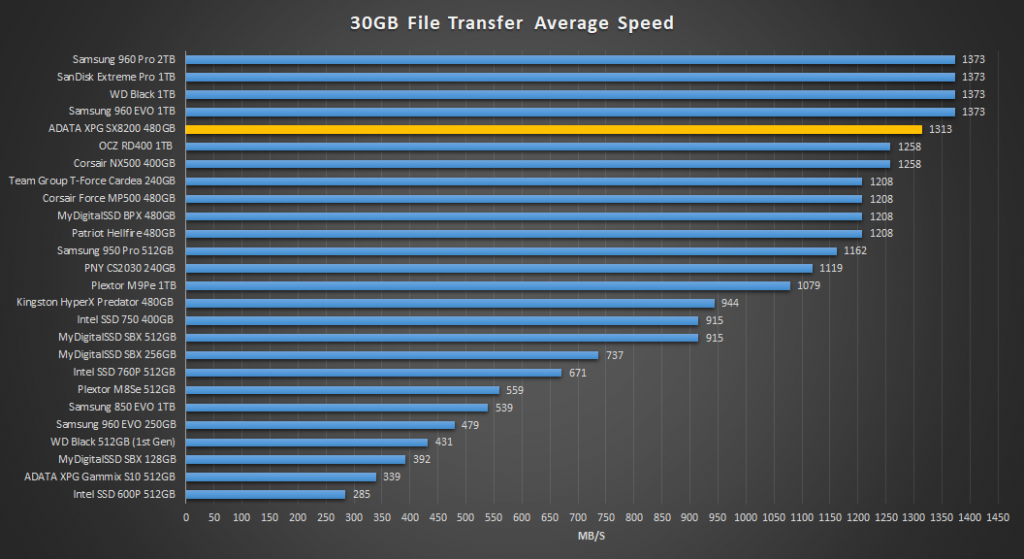REAL WORLD FILE TRANSFER
We also wanted to see how performance was in a real-world use when transferring large files to the SSD. For this test, we are going to simply stress write performance by transferring over a 30GB folder of movies off of a 250GB Samsung 960 EVO to the test SSDs and time how long it takes. Once complete we can calculate the average speed.
The ADATA XPG SX8200 delivered a very respectable result of 1313MB/s here. Unlike most other TLC based SSDs, the XPG SX8200 with Micron 2nd Gen 3D TLC seems to do very well with media files.
POWER CONSUMPTION
For our power consumption testing, we have the drive connected to the system as a secondary drive. To record the wattage, we are now utilizing a Quarch Technology Programmable Power Module. It allows us to accurately measure power consumption over time and is flexible enough to allow us to test any SSD that comes our way.
Our power analysis may change as time goes on, but for now, we are looking at just a few metrics with the main goal of measuring our results against the manufacturer’s ratings. Because most consumer systems are at idle for about 80% of the time, idle power consumption is an important measure to look at when understanding the efficiency of a drive.
First up we have our results with Active State Power Management disabled. Here they averaged 0.7W at idle. This is one of the lowest results yet, which is very good to see.
In the chart above, with ASPM enabled, we can see that it consumes about half as much power as when ASPM is disabled, just 0.378W.
POWER EFFICIENCY
Finally, we wanted to post up a graph of the power efficiency of the SSDs in write transfers. We are looking at MB/s per Watt in this graph. The higher the result, the better.
The chart above shows us just how efficient an SSD is in writing data. Here we can see that the XPG SX8200 is fairly efficient. It averages just over 300MB/s per watt, which is a huge improvement over ADATA’s XPG Gammix S10 which averaged only 81MB/s per watt.
 The SSD Review The Worlds Dedicated SSD Education and Review Resource |
The SSD Review The Worlds Dedicated SSD Education and Review Resource | 

